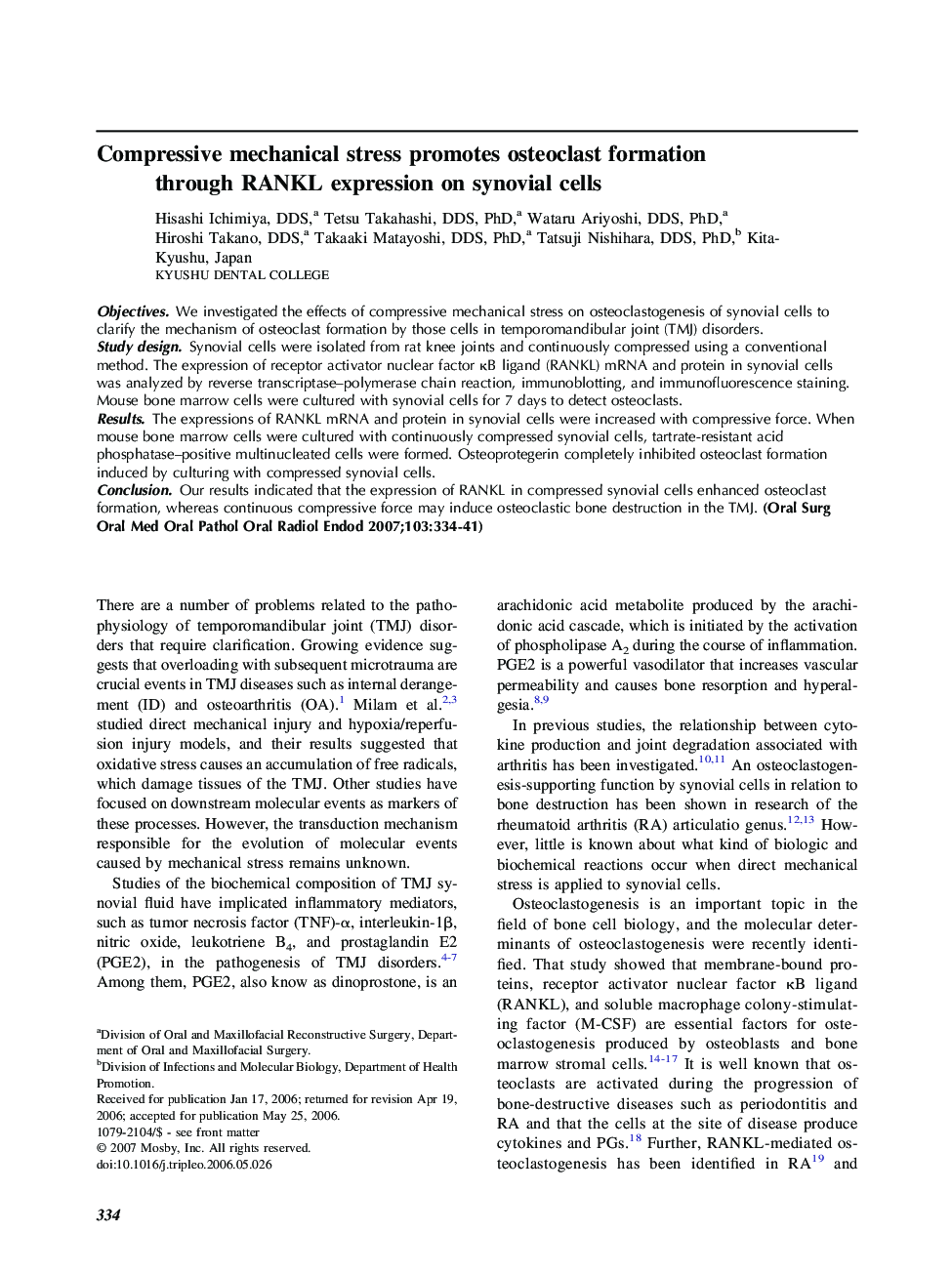| Article ID | Journal | Published Year | Pages | File Type |
|---|---|---|---|---|
| 3169514 | Oral Surgery, Oral Medicine, Oral Pathology, Oral Radiology, and Endodontology | 2007 | 8 Pages |
ObjectivesWe investigated the effects of compressive mechanical stress on osteoclastogenesis of synovial cells to clarify the mechanism of osteoclast formation by those cells in temporomandibular joint (TMJ) disorders.Study designSynovial cells were isolated from rat knee joints and continuously compressed using a conventional method. The expression of receptor activator nuclear factor κB ligand (RANKL) mRNA and protein in synovial cells was analyzed by reverse transcriptase–polymerase chain reaction, immunoblotting, and immunofluorescence staining. Mouse bone marrow cells were cultured with synovial cells for 7 days to detect osteoclasts.ResultsThe expressions of RANKL mRNA and protein in synovial cells were increased with compressive force. When mouse bone marrow cells were cultured with continuously compressed synovial cells, tartrate-resistant acid phosphatase–positive multinucleated cells were formed. Osteoprotegerin completely inhibited osteoclast formation induced by culturing with compressed synovial cells.ConclusionOur results indicated that the expression of RANKL in compressed synovial cells enhanced osteoclast formation, whereas continuous compressive force may induce osteoclastic bone destruction in the TMJ.
